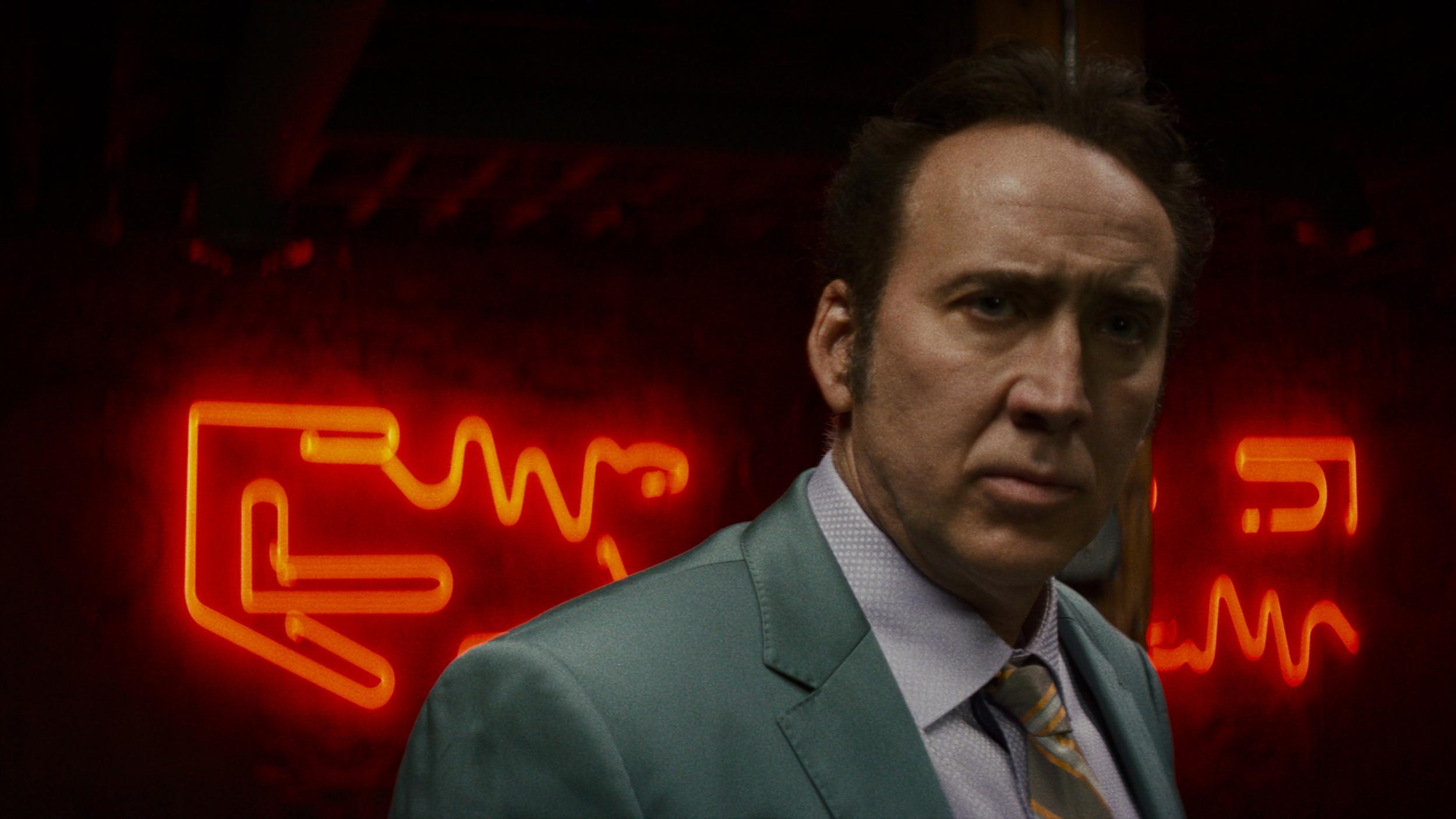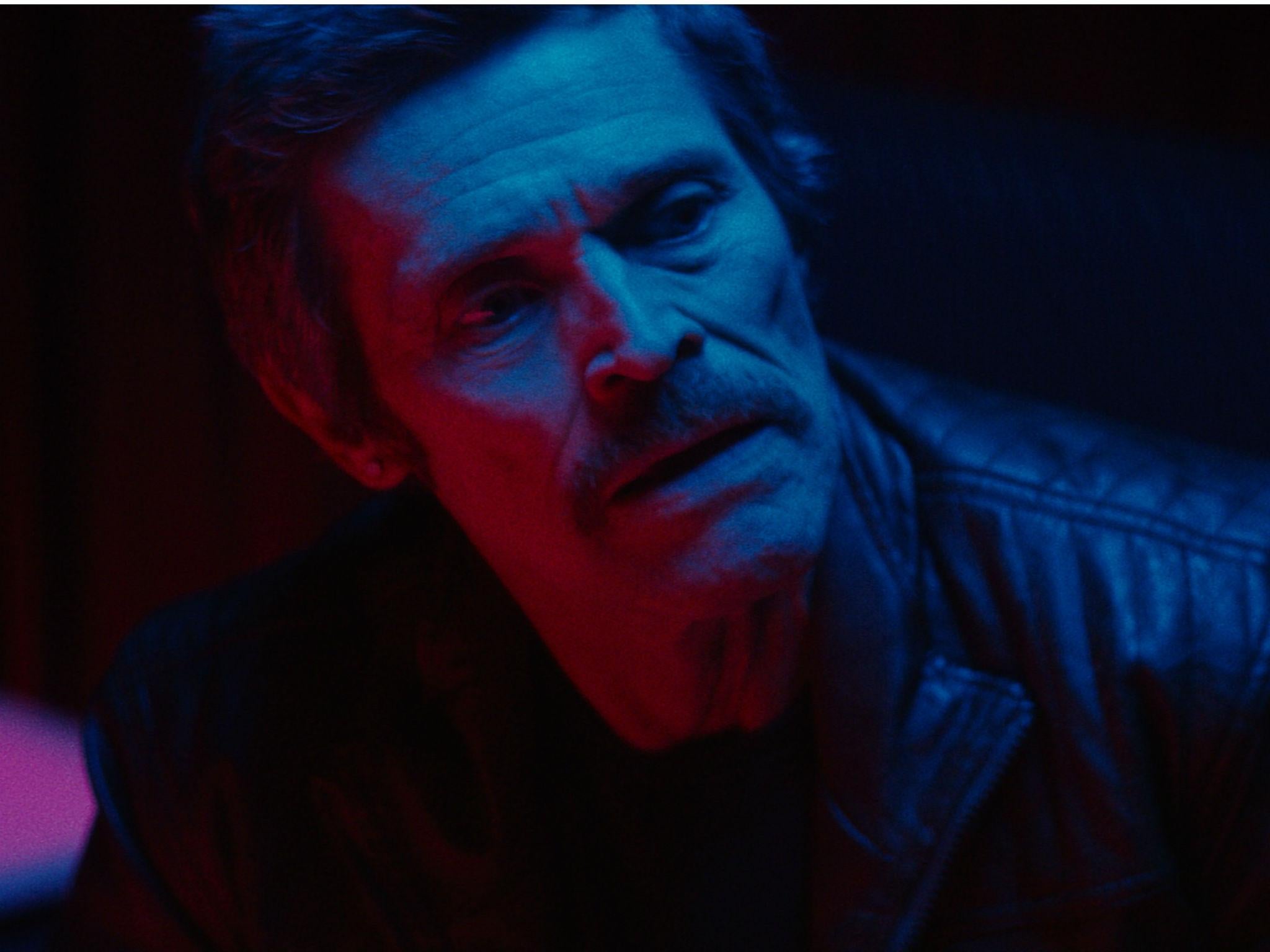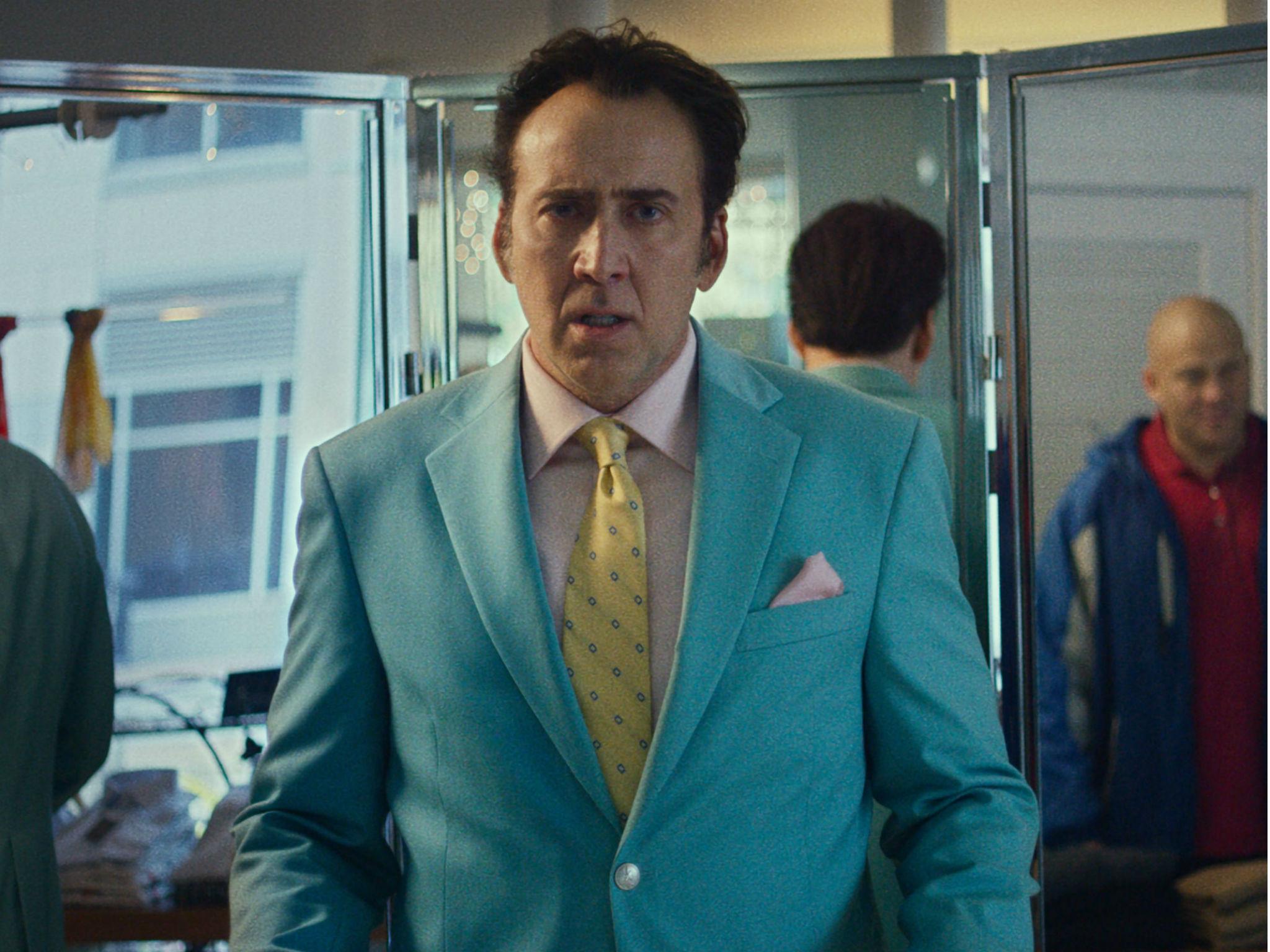Paul Schrader interview: 'Cinema isn't dead, it's bloated'
Schrader's new film ‘Dog Eat Dog’, starring Nicolas Cage and Willem Dafoe, is characteristically dark and violent but the closest he's got to making a comedy

Your support helps us to tell the story
From reproductive rights to climate change to Big Tech, The Independent is on the ground when the story is developing. Whether it's investigating the financials of Elon Musk's pro-Trump PAC or producing our latest documentary, 'The A Word', which shines a light on the American women fighting for reproductive rights, we know how important it is to parse out the facts from the messaging.
At such a critical moment in US history, we need reporters on the ground. Your donation allows us to keep sending journalists to speak to both sides of the story.
The Independent is trusted by Americans across the entire political spectrum. And unlike many other quality news outlets, we choose not to lock Americans out of our reporting and analysis with paywalls. We believe quality journalism should be available to everyone, paid for by those who can afford it.
Your support makes all the difference.“I like the idea of spurting blood,” Martin Scorsese famously remarked of the grotesquely violent shoot-out at the end of Taxi Driver (1976). Travis Bickle (Robert De Niro), the taxi driver turned shaven-headed vigilante, runs amok on a homicidal rampage in a brothel. Screenwriter Paul Schrader called this famous final reel bloodbath “the psychopath’s second coming”.
Forty years on and Schrader has just made a film even more blood spattering that Taxi Driver. Dog Eat Dog is based on a novel by the career criminal and self-confessed renegade, Edward Bunker, who achieved celebrity late in life as Mr Blue in Quentin Tarantino’s Reservoir Dogs. Bunker’s books have often been made into movies before. Dustin Hoffman starred in the very earnest Straight Time (about an ex-con trying not to reoffend). Bunker himself appeared in it as he did in Steve Buscemi’s adaptation of his prison-set novel, The Animal Factory. Dog Eat Dog is different from these earlier adaptations in its tone. It’s very dark and very violent but, in its own grotesquely cartoonish fashion, it’s also very funny. This is as close as Schrader has come to making an out and out comedy.
“It was not a comic novel but as I got into it more and more I thought: this is funny!” Schrader explains his decision to make the movie almost as if it’s a Carry On version of a Tarantino film.

The criminal protagonists Troy (Nicolas Cage), Mad Dog (Willem Dafoe) and Diesel (Christopher Matthew Cook) are engagingly stupid. However grim their behaviour, you can’t help but warm at least a little to their goofiness.
“The film is as much about crime films as it is about criminals,” the director elaborates. “There’s kind of a meta quality to it.”
Schrader himself has a cameo as a mobster boss, “the Greek”. He took on the role because he couldn’t find anybody else. “Scorsese was going to do it but he couldn’t. I asked Tarantino, Nolte,” he drops their names with insouciance. At one stage, Rupert Everett had agreed to take on the role, playing the Greek as a transgender gangster, but scheduling got in the way. Out of money and with Nic Cage pressuring him to go in front of the camera himself, he finally decided to do so. “I thought I may be bad, but at least I will be interesting.” On the day he shot his scenes, it helped that he had a fever and laryngitis and felt too ill to be nervous.
“Bunker’s theme is once you’re in the life of crime, you’ll never get out of it,” Schrader declares. There’s never much chance that the gangsters played by Cage and Dafoe will become law-abiding citizens. Even so, Dog Eat Dog is a strangely cheerful film, completely different in tone from Schrader’s recent feature The Canyons (2013), starring Lindsay Lohan, which opened with a montage of derelict movie theatres. To certain critics, it appeared as if the director and former movie critic was suggesting that film was dying.
“Don’t confuse the multiplexes with cinema,” Schrader cautions. “The multiplexes have run their course. That’s a 20th century phenomenon that has gone. But there is still obviously a lot of audio-visual entertainment – there’s a tsunami of product. You can’t really say cinema is dead. If anything, it is bloated and overpopulated at the moment.”

Cinema, Schrader adds, “had a magical deal with capitalism for 100 years. If you’ll pay to see it, we’ll make it for you”. For much of its history, it was a lucrative business for almost everybody involved, at least in Hollywood. Everyone made money. Now, he believes, new technology has broken cinema’s connection with capitalism. “Movies are now like painting, literature or music. What percentage of musicians make a living? 3 or 4 per cent? We are now getting to that point where only maybe 5 per cent of filmmakers make a living.”
Schrader is 70. He wrote Taxi Driver (long acknowledged as a classic) and directed such films as American Gigolo, Cat People and Affliction. He has an immensely distinguished career as a screenwriter. Even so, his eminence and achievements seem to buy him much respect from financiers. Many of his films have turned into bitter battles. He famously fell out with Morgan Creek when he was making Dominion, his Exorcist prequel. (His version was initially shelved while the company hired another director to make a different movie.) He was again at odds with his financiers on his 2014 feature Dying Of The Light (also starring Nicolas Cage) and wanted to have his name taken off the credits and attribute it to Alan Smithee, the pseudonym that was once used regularly by directors who’ve lost the right to final cut . “You can’t take it [your name] off,” he laments. “There hasn’t been an Alan Smithee since the Eighties. They [the financiers] buy your name. If they don’t want to take the name off, they don’t have to.”
You might think he would be disillusioned after being treated like a punchbag for so long. Schrader, though, doesn’t give up. He said to Cage after Dying Of The Light provided such a frustrating experience that they should try to work again “before we die” if the chance arose. “We should get this stain from off our clothes,” was how he put it. He read the script for Dog Eat Dog and his immediate thought was, “man, Nic might like this”. Cage did indeed like it, and that’s how Schrader ended up directing a crime movie for the first time in his career. This time round, Schrader insisted on creative control. Right at the outset, he told Cage and Willem Dafoe: “The bad news is that we don’t have the money to make this the Hollywood way. The good news is that I have final cut and we can make it in any f**king way we want. Let’s try to beat our budget with imagination.”
Having turned to crime (and comedy) in Dog Eat Dog, Schrader will be dealing with more familiar themes in his next feature, First Reformed, which will star Ethan Hawke as a minister. This will be a quieter, more meditative movie in which the main hero, like the characters from Taxi Driver, Light Sleeper and American Gigolo, is looking inward. One of its inspirations is Ingmar Bergman’s famously austere Winter Light (1963).
In the early 1970s, Schrader wrote a book, Transcendental style in film: Ozu, Bresson, Dreyer, which will be republished in a revised and updated edition next year. It seems incongruous that the director of the frenetic, hyper-violent Dog Eat Dog is an advocate of “slow cinema”, but he still champions what he calls “the idea of using boredom as an aesthetic tool”.

It has taken him a considerable time to finish the new edition of the book because he has had to watch so many slow movies. “Boy, they’re making slow movies faster than we can watch them!”
As for Dog Eat Dog, Schrader is resigned to the fact that it will barely surface in cinemas at all before bit becomes available online.
“The reason I am doing press and going to festivals is to be number one VOD on our opening VOD weekend,” he explains. Putting the film in cinemas is a means to this end. Schrader knows that in the dog eat dog world of online viewing, consumers’ eyes rarely scan lower than the titles at the top of the charts. It’s a catch 22 – to have a chance of success, you need to prove you are successful.
“If you can be the top VOD film at the (opening) weekend, then you make money. That’s where the economics of a film like Dog Eat Dog lie right now. You’re never going to make money theatrically.”
Throughout his adult life, Schrader has been entirely immersed in movies, watching and making them. The irony is that, growing up in an ultra-religious family in Michigan, he didn’t see any films at all until he was in his late teenage years.

Ask Schrader about his film-free childhood and he strikes a strangely nostalgic note.
“I was much better for it. I didn’t know anybody who saw movies and so I didn’t know I was missing anything. We had yards. You played outdoors. Your parents said to you, ‘come back when it gets dark’. Now,” he suggests a little mournfully, “the yard is a MacMansion and they (the kids) play in the game room.”
Dog Eat Dog is in cinemas and on demand from 18 November
Join our commenting forum
Join thought-provoking conversations, follow other Independent readers and see their replies
Comments